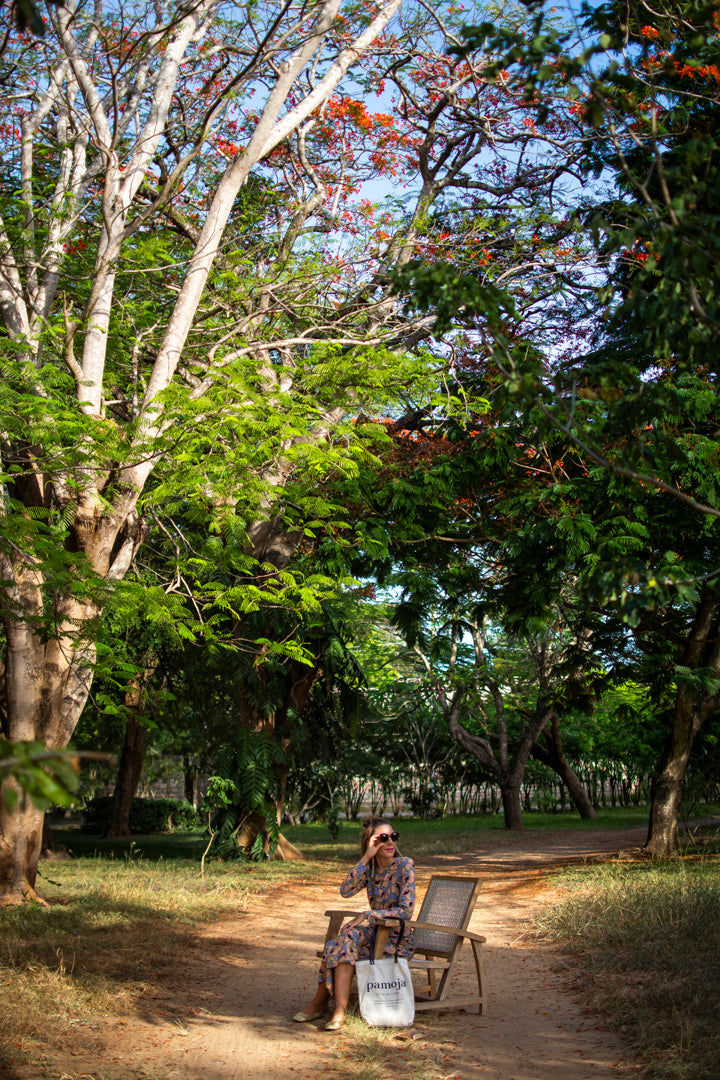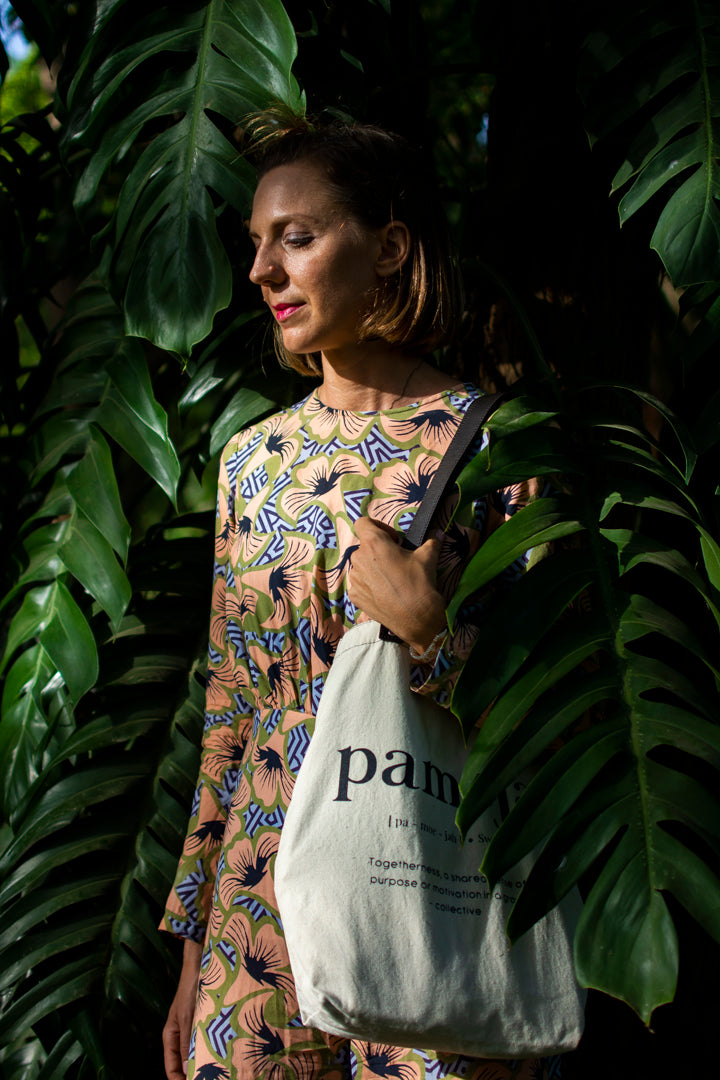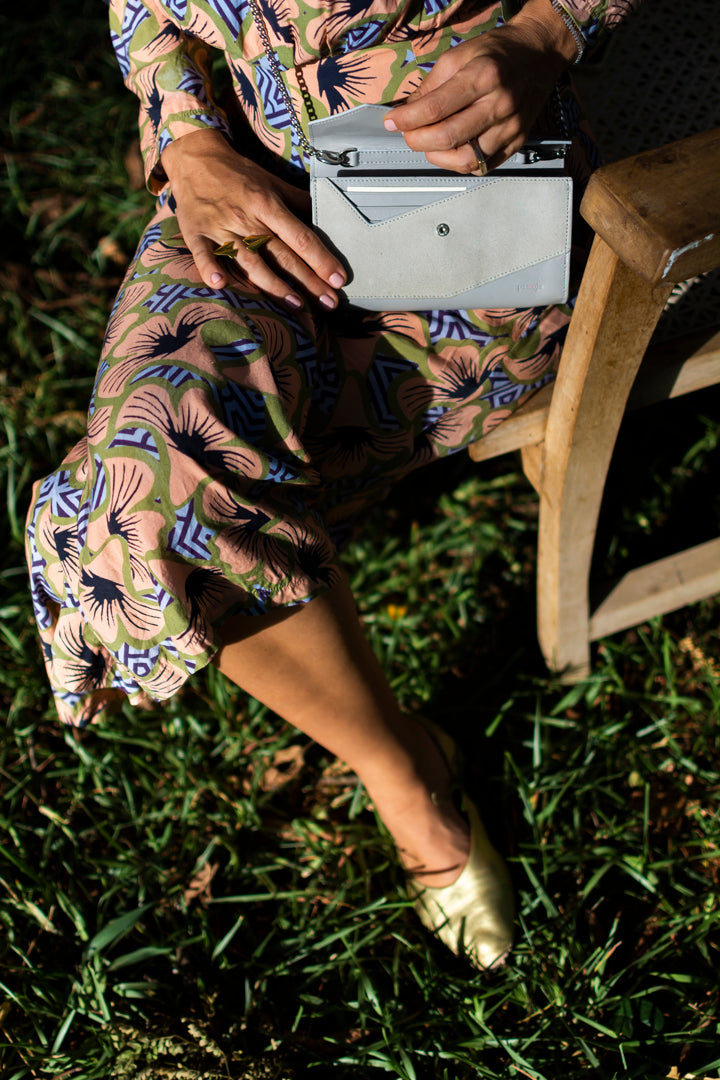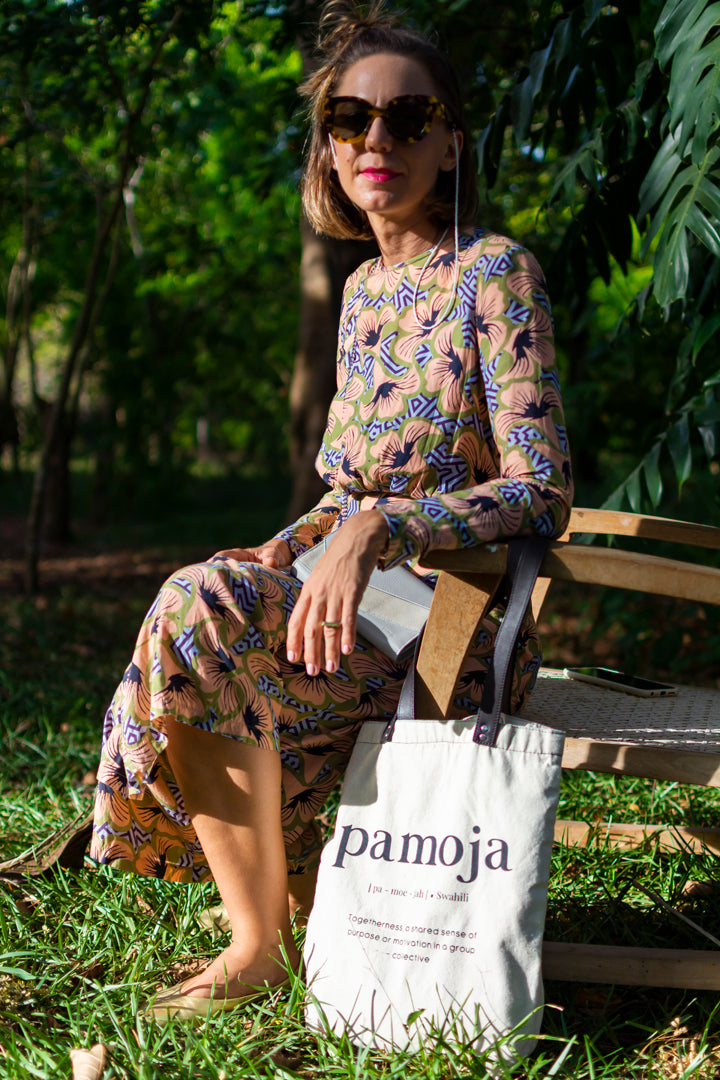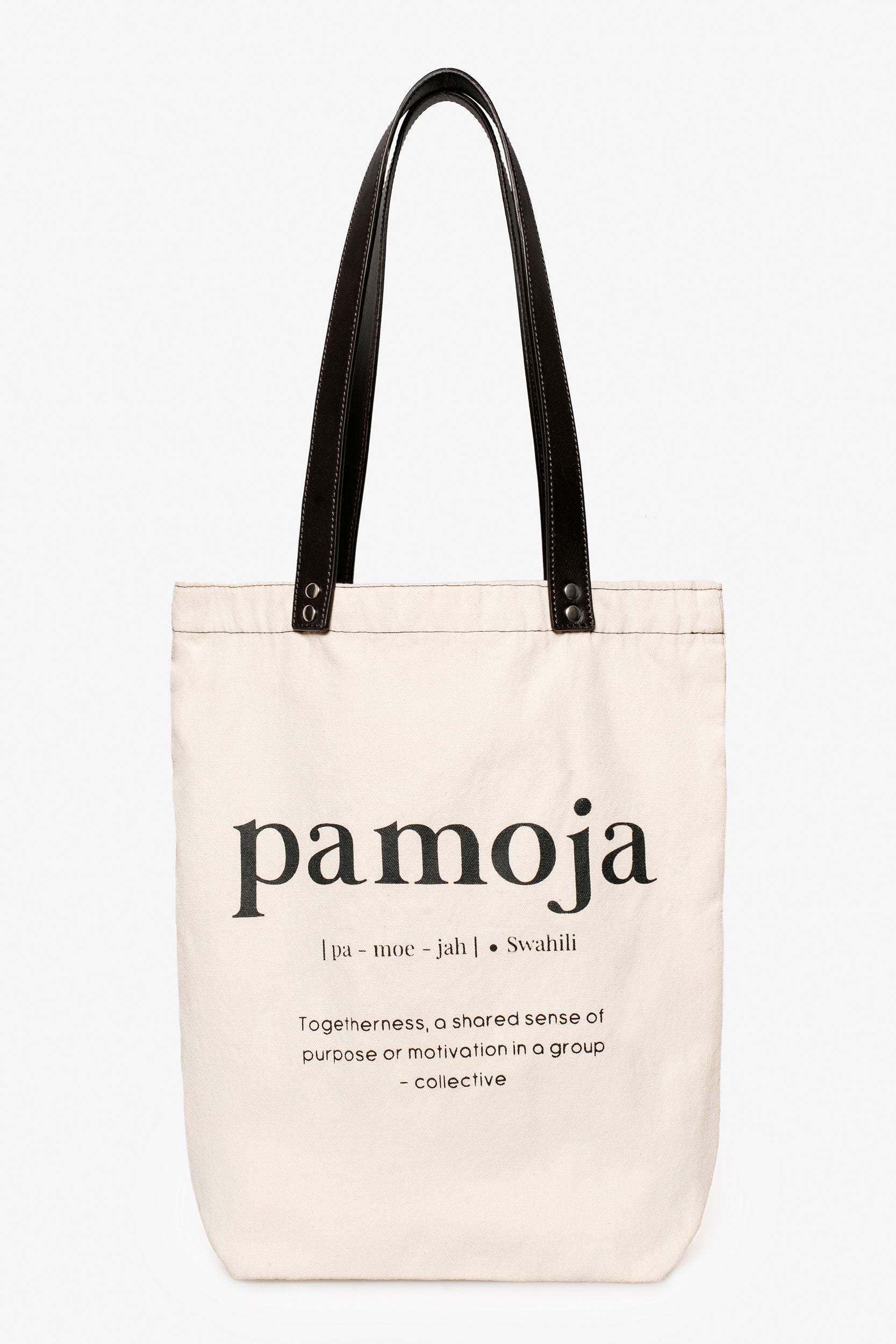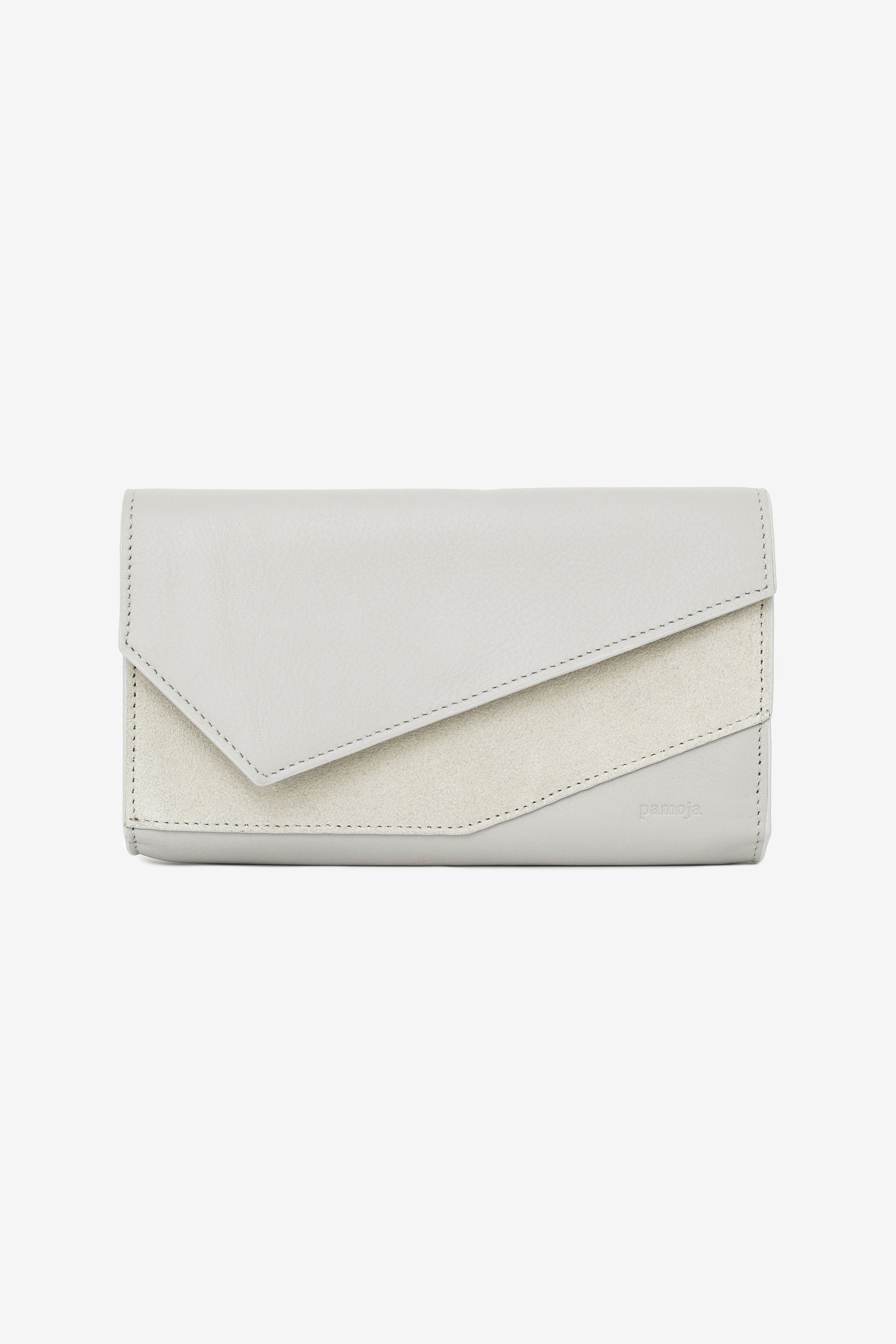05 | Joanna Maiden: Cutting A New Pattern For The Fashion Industry
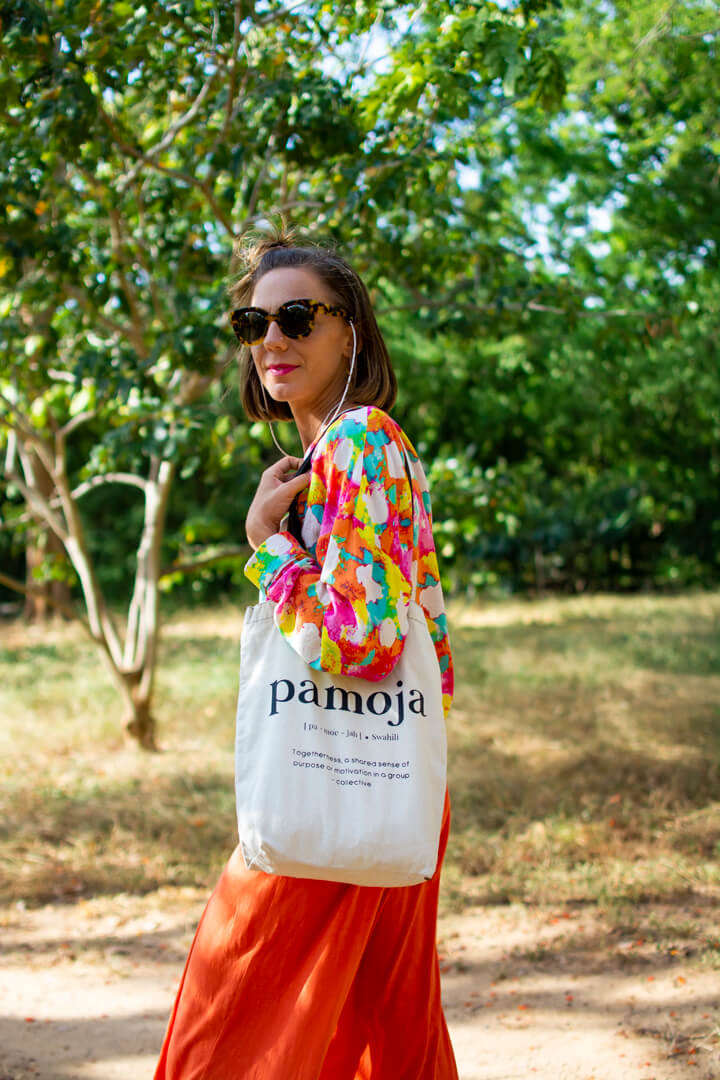
05 | Joanna Maiden: Cutting A New Pattern For The Fashion Industry
In this conversation Joanna shares how she dived into the world of fashion as a vehicle for poverty reduction, positive change, and positive impact. With the mindset to just give it a try, Joanna muscled enough courage to uproot herself to Kenya at age 24, which has now become 14 years in Kenya.
With a little knowledge on fashion and clothing manufacturing, Joanna's eagerness to learn and adapt allowed her to hit the ground running building Soko Kenya with 4 employees, which has now grown to employ 150 people.
In this conversation, Joanna shares her take on success as continuously learning, improving, and addressing the challenges of her employees and the community, which has allowed her to further push the envelope and branch out into new initiatives and partnerships, while doing what she loves.
Topics Covered:
- The trip to Kenya that sparked the idea for Soko Kenya
- Defining success as doing what you always wanted to do
- Sustainability put into practice, not just ticking off a checkbox
- The Kujuwa Initiative and addressing period poverty
- The power of the unconscious mind
- Disconnecting career from self worth
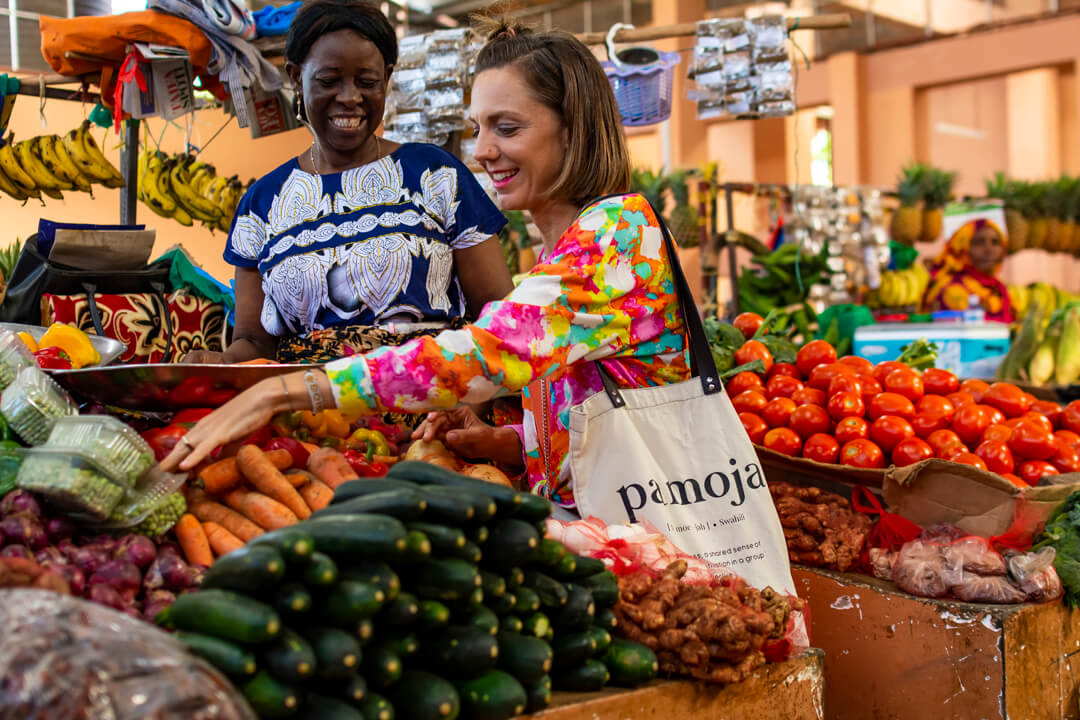
- The trip to Kenya that sparked the idea for Soko Kenya
- Defining success as doing what you always wanted to do
- Sustainability put into practice, not just ticking off a checkbox
- The Kujuwa Initiative and addressing period poverty
- The power of the unconscious mind
- Disconnecting career from self worth
Explore Our Podcast
Transcript
Joanna Maiden: She said to me, how would you feel about managing the production of my collections? And I have these four great people. And so that's how it started. Three out of the four still work for me today. One of them's retired, but the other three are supervisors managing teams of up to 50. We really grew organically together.
Stephanie: I am Stephanie Evans, and this is Diaries of a Modern Trailblazer. Take note of the journey and be inspired to forge your own amazing path.
Hi Jo. Thanks so much for joining me. I know that we are in two completely different countries. You're out there in Kenya. I'm here in the United States, and I so appreciate you joining me on this podcast. So let's just kick it off. I wanna know more about who you are, what's your background. Give us context about who you are.
Joanna Maiden: Stephanie, thanks so much for having me. Our paths have crossed for over the past few years, but it's so great to be here with you now. So a bit about me, as you'll hear from my accent, I'm from the UK but I've been in Kenya since 2009. So I was born in the UK and I lived on the outskirts of London until I was about 24 when I moved to Kenya.
And just a bit about, I guess how I ended up moving to Kenya, which is really linked to how I was as a child I guess, which was like from a really young age. I just, I had a really deep sense of inequality and injustice and I really struggled to grapple with the kind of magnitude of it and understood that by chance I was born into a white, middle class British family. And I felt like I had a real responsibility because of kind of my opportunity for education.
Alongside that, I was always really fascinated with the fashion industry and the complex supply chain and the design process, the construction of clothing, all of that stuff, which you know about Stephanie, fashion weeks and trends, but I couldn't see how the two linked. And at the age of 16 I started to see the two come together, the two being the social justice aspect and the fashion industry. At school I was studying economics with a focus on, development, and the impact of the global north on poverty and climate devastation. I also was studying fashion and textiles at the same time. And I started to ask myself if fashion could be a vehicle for poverty reduction and for positive change and positive impact.
And after finishing a degree in fashion and textiles, and spending a handful of years in the fashion industry in London, I had this opportunity to move to Kenya. Actually I didn't have an opportunity to move to Kenya. I had an opportunity to come on a three week trip that was linking, buyers from Europe with artisans in East Africa. And the idea, for Soko, Kenya was born. It was naive, it was hopeful, it was an idea but it was whether I could, the idea was could I build a clothing factory that was founded and rooted in making a positive difference? To its employees, to the community surrounding the factory. I started with four people and we grew organically. I now employ 150 and have a charity with the Sewing Training School and a period poverty schools program. So that's a bit of a nutshell about me.
Stephanie: That is awesome. How old were you when you came to Kenya and thought about bringing this concept together?
Joanna Maiden: So the first time I came, I think I was around 22. I came for those three weeks with my husband and at the time we were thinking about having a break from London, a kind of opportunity to step out of kind of plan that we saw ahead of us progressing in our careers, getting a mortgage, having children. We were like, let's. A creative kind of couple of years out. A couple of years turning into 14, 13, 14 years, soon to be 14 years. So when we actually moved here, we were 24.
Stephanie: Wow. That is quite a change. And very bold. And so what were the biggest hurdles and challenges that you faced when you first moved to Kenya coming from the UK?
Joanna Maiden: It was a totally new culture. I knew nothing really about fashion, clothing manufacturing. I started really learning everything that I could about everything. What fabric could be sourced locally? Can we buy boxes? How do we buy boxes? Everything. And how do I establish myself and my husband in this new country?
Stephanie: With four people, how did you determine that was pretty much what you needed as far as resources to get things started?
Joanna Maiden: So the first step was that there was a small clothing brand who employed, on a casual basis four local tailors. And she didn't want to manage the production of her collection anymore. That was the first step. She said to me, how would you feel about managing the production of my collections? And I have these four great people. And so that's how it started. Three out of the four still work for me today. One of them's retired, but the other three are supervisors managing teams of up to 50. We really grew organically together. As an order came in, I just slowly grew the team.
Stephanie: For them to still be with your organization and grow with you and to that front, we had talked about responsibility with money and people. How do you measure success on both fronts while growing this business, growing this factory, and driving the social impact around it?
Joanna Maiden: So I think the big thing for me, so if we think about success is that we're doing what we always wanted to. It's possible to run a sustainable, ethical business built on producing beautiful high quality clothes, that everyone can feel proud of whilst putting people, our team first. That's my grounding, that's my solid ground. As long as we keep doing that, we're succeeding. But in terms of the business success, I think what's, really important is feeling proud and aligned with the brands that we work for.
As we know, the fashion industry is murky. It's got a lot of issues with it in terms of how brands run their businesses, and so it's really important to me that we build partnerships with brands that are aligned with us. We can feel passionate about them and they can feel passionate about. And alongside that, my responsibility for my employees is keeping everyone in jobs. Having a wide customer base to support security and sustainability of the business.
Success is basically about never standing, still always learning, always improving how we work, improving how we support our team. And so an example of that is, last year was a really great business year for us. The year started with it looking like we were gonna have to make some redundancies that by the end of the we'd grown had some new really exciting brand partnerships, which meant that we had some extra money. And with that extra money we created a pension scheme. And each of our employees now has a pension backdated to when they started working with us that we put in a lump sum.
Sustainability feels like it's put on everything these days. Sustainability isn't about ticking box. In my opinion. It's something that is actually about a mindset. In the factory, we pay everybody a living wage. And we provide a hot meal every day. We have free childcare for people with children up to school age. We have a company doctor But last year I was realizing that my team, though they have all of this support, they still very much live to hand to mouth. And part of the reason for that is the statistic is that every employed person supports seven people.
Stephanie: Oh, wow.
Joanna Maiden: So that's not just. that's not just your spouse who is unemployed maybe, or your children. It's, you've got a good job and your brother is unemployed. He comes to you. He can't support his family, et cetera. And I started thinking, okay, we're giving people a good job and we're paying them a living wage, but what happens when they retire? And actually our responsibilities should be, for their life, if someone works here we've been going for 13 years, if someone reaches retirement age and then the state pension isn't a reliable and isn't a lot of money, that's not, we haven't been responsibly caring for that person.
So I think for me it's, success is about constantly being constantly learning, constantly seeing us improve what we offer and seeing the challenges in the community and for our employees and trying in every way we can to support that. And then we also have a charity.
In terms of success, in terms of our social impact are reaching in the community and it's not just within the doors of the factory. And so some examples of that are we do training in the community about kind of money management getting out of debt around sexual reproductive health and rights and family planning. And we do our school's work where we take offcut fabric from the factory, so the fabric that would be fabric waste, and we use it to make a water sanitary pads that we then donate to girls in school alongside training. So we do a weekly after school club which is basically a very, an open space. Young people to be able to ask any questions, for there to be no kind of embarrassment or shame about not knowing anything or sharing things that you don't, you wouldn't feel safe talking about in your home or directly amongst your peers.
It's called the Kujuwa Initiative and Kujuwa means knowledge. And the reason that we started. That project is because we were, we're passionate about supporting women and we were seeing that when we were doing training with women in the community around sexual reproductive health or money management we kept getting feedback from them that women in their thirties with children saying, I wish she'd reached me earlier. If I'd had this knowledge, then my, the trajectory of my life would've been different. And I now have more children than I necessarily would've planned for. A lot of them are single mothers. And so as a team, we looked at how can we support these women before they get there? And we saw that around the age of puberty the school attendance was starting to drop. And there are multiple reasons for that. But one big one was that was access to sanitary products and that they, not feeling confident to ask their parents or talk about it. And also many parents just not having the money to support their children in that way. And so we looked at if we can provide the product and open up the conversation to remove the shame and stigma around it, then maybe we could see those girls become women who had taken a different path. We are seeing girls who we've gotten a number of examples of girls who had just started their period and suddenly closed down, wouldn't put their hands up in class because they were afraid of being asked to stand up and not sure if they bleed through their clothes and would be laugh at. And part of our support is we do training with the girls, but also with boys and teachers and parents because a girl can be all empowered and, understand everything and feel confident in herself. But if there's not an open conversation in the community around her, she's going to shut back down. Yeah, so that's a bit of about it success and the impact we are trying to have.
Stephanie: Yeah, that's honestly one of the things that drew me to reach out to you because at Pamoja we are working together with the Kujuwa Initiative and a portion of our proceeds are donated to that charity. And so I just love to hear all the great things that are in store with the Kujuwa Initiative and just hearing the outcomes. And, it's something that we don't really have much exposure to out here in developed countries like period poverty is a thing and it really does impact communities and girls and their overall trajectory in education at the end of the day. So I don't know if there's anything else you wanna share around that, but definitely would love to hear your perspective on it.
Joanna Maiden: Yeah, so I think what the kind of stories that were coming out were just so disconnected from the global north and there obviously is, that there is period poverty and charity supporting that in the states and in Europe But we were finding that girls were, going to school without wearing, who were going through puberty, whose bodies were developing, going to school without underwear. Their innocence was being abused through men exchanging period products for sex. And they're just, the conversation is really It's, there's a lot of shame around it. And I think also a lot of mothers don't really understand their bodies and how the period cycle works and how you can track it. And there are still a lot of stories in the community around like old wives tales. If you contract HIV and have sex with a virgin, you. You are, you are cured.
And so there's a lot of work that, amazing work that my team does around basically allowing any question, any conversation to be open. And to be honest, cuz I don't I don't go very often as a white woman, my face isn't that helpful in the community schools, and I'm, I am, I'm happy for the team to do that, but when I do go and stand at the back, I'll find myself blushing with how open and honest the conversation is, which still shows, how even though I was raised in a family where it was, it was an open conversation. I was, taught at school about it. There still is just this kind of underlying, embarrassment around talking about anything to do with sex and bodies and puberty. And so it's amazing to see that our team have created such a safe environment that these young people who really have never been able to ask any questions or talk about it can do that so freely.
Stephanie: One of the things you had mentioned was, sometimes you finding yourself being the minority in the room the white woman from the UK. Like how has that been for you living in Kenya?
Joanna Maiden: So Kenya's British colonized country with a a sad history around how that all happened. Kenyans as a people are really like open and accepting. I don't feel that I that I'm seen like that, but I'm very aware of that history.
And I think it really was about Um, like as we know in life, we can't control how we're viewed, you know? People will form their opinions. And I think for me, I made sure that I was focusing on my personal values, what I was doing and why. I did and do a lot of personal work, a moral inventory, educating myself being open to learning and change and standing in my personal beliefs and my internal truth. And I think being conscious of it and aware has really it's just a big part of it.
And I think. I think there's, as I've said, there's the part of continuing to educate and learn and listen to books that are maybe quite uncomfortable. And to also, kind of this continual moral inventory.
And it was really interesting because when I first started, I remember I'd meet with the team, we'd have an issue and I'd meet with the team and say, so what are we gonna do? Like, how are we gonna fix it? And they would say you are the boss. You tell me, you tell. And I was like I don't know that. No one knows the answer. There isn't a right answer. We, and I think that culturally as well, there's a very, it's a very hierarchical culture. The education system doesn't really have much space for kind of outside kind of creative thinking. It's very about follow, copying and learning. And That's also been really interesting. I don't look like a big boss in terms of the culture of what a big boss looks like here.
Stephanie: Yeah.
Joanna Maiden: They tend to be, have a kind of much bigger presence than I do. I'm ultimately a gentle soul and a kind of empathetic soul. And so yeah, it's also been me figuring out how to step into the shoes of someone who, runs a business that employs 150 people. And I have an amazing management team. There's, there are four of us and it's, it, we, it's very it's very open that, I'm, there may be very few decisions that kind of stop with me. but mostly it's a collaborative. We make a lot of collaborative decisions. There's a lot of room for me to be wrong all the time and all of, those things. So I think with all of that, it's about continuing. We ne we never stop learning, do we? We never stop. That's key changing. Yeah.
Stephanie: Circling back to values and personal beliefs, what motto do you live by?
Joanna Maiden: That's a really interesting question and I don't think there is one that I live by. Cause I feel like I'm forever evolving into a new person. But one thing that I've been working on recently in myself is the belief. The belief that I don't have to graft. Like I'm a really hard worker. I always have been, and I think I, we're raised in a society that teaches us that's how you get ahead. And what I'm playing around with, I guess in my mind, in my life is adding play and adventure into everything I do. His play. And that doesn't, I don't necessarily mean literally. a spreadsheet can be, a spreadsheet can be playful and adventurous for me.
Stephanie: Yeah, it can.
Joanna Maiden: I love a spreadsheet. But I've been like honing in my 24 year old me who moved to Kenya with a dream, with little experience It was fine to give something a go fine to make a mistake. Cuz we really came and said, if this doesn't work then we can just go home. Like we won't go home with a tail between our legs cuz we've failed, we'll go home having said that, we've had a, like an amazing experience and loads. Like I wanna get some of that back. And I think, with age, like I have three children, I'm 41. It's easy to feel that less and feel more of the kind of burden of like age and responsibility. But yeah, so it's, I think it's adding play and adventure, fun into everything and trying to look at it through that lens rather than the lens of, I have to work really hard and I have to do everything I can to make it work. Cause actually I don't believe that anymore.
Stephanie: Yeah. And just to continue on with that notion, can you share an example of how you are bringing play and fun into your life?
Joanna Maiden: Yeah. I listened to this really interesting podcast about the power of the unconscious mind and it was about how we. I'm terrible at remembering any stats, but how basically our unconscious mind has the ability to solve problems so much faster than us, like cognitively trying to fix something or trying to work out how to solve it. So we live on a creek, going for a swim or a walk or like dancing is fun and playful and adventurous. And it also is so powerful in terms of the creativity it bubbles up and the space it allows our minds to, to connect dots and come up with solutions. So that's one of them I would think I can't go for a swim or a walk cuz I've gotta be, grafting away and actually recognizing that, letting go of the doing stuff cuz that's, my, and that partly for me also is about stepping into my role of, actually my role is not to be scurrying away, it's to be being strategic and be thinking. Like you said, the, like we were talking about what success is and how to ensure sustainability for my organization, and that comes from thinking outside the box. That doesn't come from, like re-looking at a spreadsheet that I've edited a million times already.
Stephanie: Yeah. And then not only that, it's as I think about it, how do you bring joy into your life? Just those little things that are so simple can make a difference in impacting your life and others around you positively. So that's so awesome to hear. I was doing a little digging around background research on you, and there was something interesting that I came across and you had mentioned that it took about 13 years to get over the fear of what people may think of you. And I. Kind of feel that sense in a way as I'm on my entrepreneurial journey, I feel like we find ourselves in these spaces that ultimately limit our ability to grow. So just from your experience and your perspective, how do you push that boundary?
Joanna Maiden: I think again, it's about Doing a lot of personal work. So I will, like, whenever someone, whenever I get some sort of compliment or something goes well, I've started to record it so that I can go there and remember things that are true when I'm having a wobble. I've also, it's so cheesy, but I've I've got some affirmations that I've created for myself that I've put on a voice memo that I listen, that I listened to the other day. My husband actually overheard me listening and I was like, trying to stop and he was like, oh, this is so embarrassing. But yeah and apparently have it on repeat. So repeat it for two minutes and listen to it every day. And that's the kind of power of the unconscious mind start part, work as well of they're things that I believe and I think sometimes affirmations can feel a bit painful if you don't believe them. Yeah.
And I love someone said rather than, it's like I, my, my nine year old is actually doing this as part of school and she's got it on her. She's written some in the mirror. So like her one she's put on for example, is I am smart and I don't think she really believes that she's very smart, and I think that's why she's put it on there. But the turning it into May, I know that I am smart, like I don't yet, but I want to. so may I know that may I know I am smart. May I know I'm capable. May I know I've got this. May I know that I've done the groundwork. Yeah. Like I'm thinking about you Stephanie. It's like imposter syndrome just pops up so quickly. And so unexpectedly and it's like those statements or even like I I haven't done it in my house cause there are too many people around, writing it on the mirror and seeing it in the morning it does. It does make a difference.
Stephanie: Yeah, that is a great reminder because I actually do have some written down and I haven't looked at them in a while, and I really need to pull that out again. Like I have digital affirmations that are sent to me on my phone, but there's some that I've actually written down and I used to speak them out loud every single day. And it is powerful. And to your point, like sometimes it's hard to believe that. It's really you and that you're capable of doing it. So yeah, I'm definitely gonna take that into consideration for sure. Just thinking about that, like sometimes we do place so much judgment and burden on ourselves failure is a thing and it's real. And I'm just curious, how has failure been a pathway to success for you?
Joanna Maiden: I think, this is the theme of what I'm saying, I think, but I think it is it's about learning and I think there's another kind of big bit of work that I've done on myself is disconnecting my career from my self worth. And if I'm not okay just as Joanna Maiden as the woman, like not Joanna Maiden in there, founder of Soko Kenya, the wife. the mother, the friend, just me and my person. If I can. If I can deeply know my own value and not have it so connected to my success or failure I feel like that is and so important and life changing. And as women we need to. We get given so many hats and we take so many hats and how do we yeah. Not, how do we separate what we do from like our value? Yeah. And so I think it's about what we can learn from each of those things. And it not mattering too much, which is so easy to say right now talking to you. Cause yeah, things matter and like messing up matters, but it doesn't. We've gotta hold it, hold it more lightly. And also just, I think for me, recognize that I'm only one person, that I'm a human. And allow myself the grace to be those things.
Stephanie: With all those hats that you wear, how do you even disconnect and take the time for yourself?
Joanna Maiden: I think I'm really considerate about that these days. I have I think that with the birth of my third child. I was like I literally can't do it. And so it forced me cuz I, I could just about before that and, but actually I was just running on empty all the time. And so it's forced me. And so I think for me it's, I talked about dancing with my friends getting outta my head into my body, dancing, swimming. I, since the new year, I've got a bit outta practice a bit, but before the new year, I was consistently every morning setting an alarm on my. And doing a five minute meditation, like sitting in silence with my eyes closed. And I could tell myself five minutes is pointless. This is a joke. Allowing all the things that I needed to do to pass through my mind. And be okay to not be doing them. And I found that such a good practice that I need to bring back in, but Yeah.
Stephanie: Reminder to self!
Joanna Maiden: I know. Yeah.
Stephanie: Yeah. One of the questions that I love to ask is, when you think back and reflect on where you've been and where you are now, in hindsight, what advice would you tell the younger version of yourself?
Joanna Maiden: I think it would be to back myself to know that it's all possible, anything's possible and that I can do it. And I feel like I held myself back so much by not kind of believing enough in myself. And yeah, and I feel like as we were talking about earlier, the imposter syndrome comes in, all the stories come in, you haven't done this before. Who are you? All of that stuff. You're in a country that isn't your home, what do you think you're doing? You don't, you dunno anything. And just really finding that deep sense of confidence and belief that I can do it. And And it's not a failure it's just a growing, experience and knowledge. if I try and it doesn't work, it doesn't matter.
Stephanie: There's always other things to do.
Joanna Maiden: Yeah. And it's not a failure it's just a growing, experience and knowledge.
Stephanie: Definitely. Yeah, that, my last guest we were talking about that, like how failures are opportunities to learn and just overcome challenges. And as we wrap it up, what's next on the horizon for you.
Joanna Maiden: Yeah. So I'm always excited. There's always the new, what's next? I love that. We're sampling at the moment for a handful of new international brands who I like love. I feel if it was 16 year old me and those brands were around then I would never believe, it's like they're so aligned. They're so cool. And so that feels really exciting. And in terms of the charity side we have got some great corporate partnerships, obviously, like Pamoja. I'm really excited about Pamoja's future
Stephanie: Yes.
Joanna Maiden: To grow that together. And we've received the kind of quality standard mark in Kenya for our pads. We're the second organization in the country that has got it for washable sanitary pads. And so we're looking at having them more widely distributed around the country.
Stephanie: Wow, that's amazing.
Joanna Maiden: Yeah. There are lots of schemes that, that donate disposable pads to communities, to school girls, but obviously, you have to give them every month. They go into, rubbish dumps that are completely unregulated and when the money runs out, the, the girls don't have access to them anymore. So we're really excited about creating partnerships and basically encouraging organizations and businesses to shift from disposable to reusable pads. And, we price them in a way that's really affordable. So one of our pads, the cost of it is equivalent to one and a half months of disposable pads. So it really does make sense. Yeah. Yeah, so that's really exciting and we've got some partnerships. Some period product brands and some other businesses coming through to expand our community work. So we're in a season of being really open to building partnerships and, bringing new brands on board and really getting our name out there and sharing proudly about the kind of positive change we're trying to have by supporting women in jobs to let themselves out of poverty.
Stephanie: That's so awesome. It's like the year of great things to come. And then just for the audience if they wanna learn more, how can they learn more about the great things that you're doing?
Joanna Maiden: Yeah, so we're on we have a website for the business and the charity. So the business is Soko Kenya and the charity is Kujuwa Initiative. And we're on social media on LinkedIn and Instagram. So we're easy to find if you look for us. Yeah, and we're just always, we're grassroots doing our thing. And we just always ask people to spread the word about what we're doing. And we're really grateful for that.
Stephanie: For sure. We'll definitely have the links in the notes for the podcast, so definitely click through on them and check out the amazing things that are being done. Thank you so much, Joe. This has been an amazing conversation and I so appreciate you. Can't wait to actually meet you in person. Make a trip out there to Kenya too.
Joanna Maiden: Stephanie, thanks so much. It's been such a pleasure to chat to you and yeah, I'm excited about our kind of relationship going on and on for years because it feels like it's kinda grown over the last few years. And on May it go.
Stephanie: And that's a wrap. So own it and make moves. One day, I wanna share your journey on this podcast.





